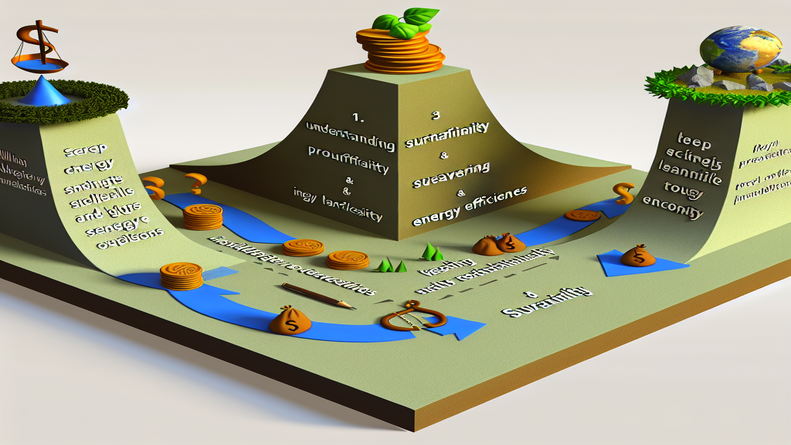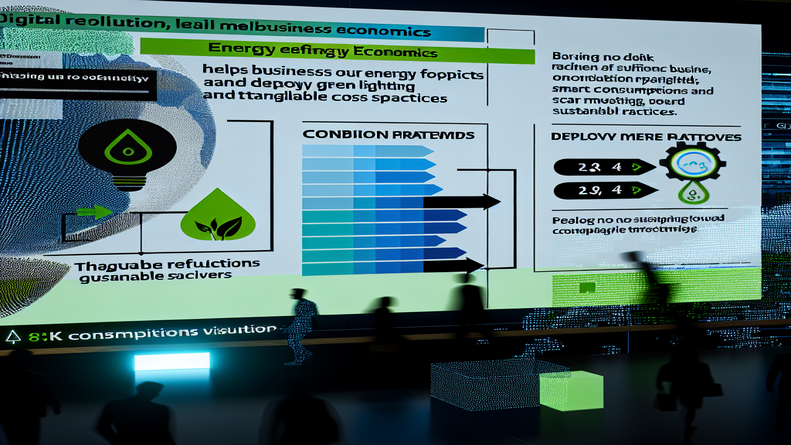Imagine living in a world where financial institutions not only manage wealth but also contribute towards a greener planet. The world is already seeing this transformation, with banks stepping into the role of eco-conscious shepherds, guiding industries toward sustainable practices. The crucial query now is, can financial tools designed by a bank like NatWest genuinely help small businesses cut energy costs and effectively reduce their carbon footprint? This article delves into the recent innovative steps taken by NatWest, unveiling an inspiring narrative for passionate eco-friendly entrepreneurs.
🌿 Shifting Gears: Embracing The Green Mandate
Starting a business in the eco-conscious sphere is no small feat. The initial tribulations include understanding complex energy tariffs and recognizing how to weave sustainability into the fabric of day-to-day operations. For small UK businesses, the challenge multiplies with the need to stay profitable while honoring their environmental responsibilities. At first, this juggling act between cost and conscience presents more questions than answers, testing the entrepreneur’s mettle in the face of regulatory pressures and market expectations.
The learning curve, however, is steep yet indispensable. With each obstacle, there emerges a clearer vision of how to marry profitability with planet-friendly practices. Business owners start acknowledging that embracing energy efficiency isn’t just a corporate responsibility but a strategic shift that can lead to significant financial savings. Still, the path is ridden with uncertainty, as the tools and knowledge required to make this shift are often scattered and complex to navigate.
💡 A Beacon of Innovation: The NatWest Breakthrough
In a compelling twist of innovation, NatWest introduces a new digital tool tailored to enlighten and empower. When small businesses are floundering to balance their books and carbon emissions, NatWest’s digital solution emerges as the much-needed lodestar. Its introduction marks a pivotal moment that transcends a static bank-client relationship, signaling a dynamic collaboration geared towards a sustainable future.
This transformative initiative is more than just software; it’s a gateway to understand, measure, and reduce energy consumption in a robust yet user-friendly manner. The tool isn’t just about informing—it’s about initiating change, with actionable insights leading to real-time savings and a measurable decrease in environmental impact. Effortlessly, it connects the dots between clean energy practices and commercial prudence, celebrating the synergy that propels businesses forward.
🔍 Analyzing Footprints, Charting New Territories
 With the turning point established, NatWest’s digital tool now assists businesses in meticulously analyzing their energy footprints. This granular insight into consumption patterns is the first step towards any substantial scaling of green measures. It unveils opportunities for optimization that were previously veiled in spreadsheets and utility bills.
With the turning point established, NatWest’s digital tool now assists businesses in meticulously analyzing their energy footprints. This granular insight into consumption patterns is the first step towards any substantial scaling of green measures. It unveils opportunities for optimization that were previously veiled in spreadsheets and utility bills.
But the scaling up is not just about conservation; it’s about implementing astute energy solutions. From LED lighting to smart sensors, the digital tool not only recommends but also helps orchestrate the transition towards more sustainable options. Thus, a business can undergo a green metamorphosis, equipped with knowledge that translates into tangible cost and carbon reductions.
📚 Sustainable Wisdom: Transcending Challenges
NatWest’s endeavor is a trove of lessons for eco-oriented entrepreneurs. Chief among these is the realization that technology and data can radically redefine our approach to energy management. As these business owners absorb the digital tool’s insights, they become custodians of their own energy futures, adept at preventing wastage and promoting sustainability in their operations.
However, the journey also cautions against complacency. The evolving landscape of energy and sustainability necessitates continuous adaptation and learning. For a tool like NatWest’s to retain its efficacy, sustained engagement and iterative improvements are non-negotiable. Business resilience, therefore, must extend beyond financials and into the realm of environmental stewardship.
🚀 Charting the Horizon: The Green Blueprint
Peering into the future, the prospects are as verdant as they are vast. The NatWest digital tool stands not just as a landmark achievement but as a promising precursor to more profound advancements in green finance. Forward-looking strategies already place emphasis on broader, more interconnected modules of sustainability, embedding eco-intelligence across business departments and decision-making processes.
The future blueprint involves scaling these tools to weave sustainability into the DNA of all small businesses. They outline ambitious targets that leap past regulatory compliance to pioneer a corporate culture that inherently values and invests in a more sustainable economy. NatWest’s tool is but a stepping stone to a grander vision that unites profitability with planetary well-being.
Conclusion
The entrepreneurial journey with NatWest at the helm redefines what one can expect from a financial institution. A simple digital tool has the power to transform small businesses into echelons of energy efficiency and custodians of the planet. The story narrated here is about more than reducing utility bills; it’s about cultivating the resilience, ingenuity, and foresight necessary to propel a business to economically and environmentally conscious heights.
Are you ready to join the movement and redefine the scope of what’s possible within your organization? Connect with me on [Laurent Rochetta’s LinkedIn page](https://www.linkedin.com/in/laurentrochetta/) to explore how you can harness innovative platforms and embark on a journey towards unparalleled sustainability and productivity. 🚀🌟
